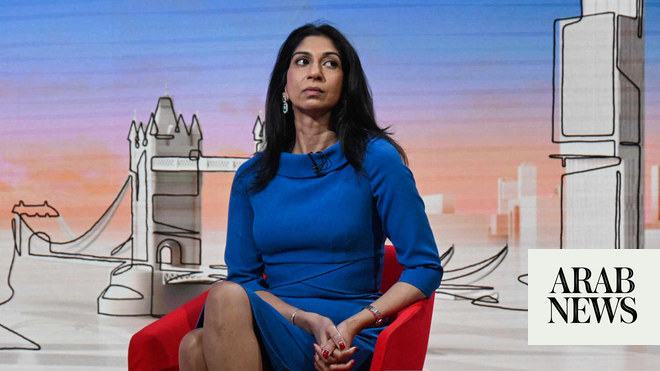
NEW DELHI: Controversy has erupted in Ladakh, an Indian-administered region in greater Kashmir territory, after the official status of the Urdu language was removed from job requirements in a key administration department.
Part of the greater Kashmir region, which has been the subject of dispute between India, Pakistan, and China since 1947, Ladakh is an arid, mountainous area in the Himalayas, covering about 59,000 square kilometers, much of it uninhabitable.
It has fewer than 300,000 residents — over half of them Muslims, with the second dominant group being Buddhists. Muslims are concentrated in Kargil, while Buddhists in Leh, both of which serve as the region’s joint capital cities.
For more than 130 years, the official language of Ladakh has been Urdu, which is spoken by Muslims in the Indian subcontinent.
But last week, Ladakh administrator R.K. Mathur issued a decree that dropped the requirement of fluency in Urdu for job seekers in one of the administration’s key divisions, the revenue department.
The decision was immediately welcomed as “reformative” by Jamyang Tsering Namgyal, a Ladakh parliamentarian from India’s ruling Bharatiya Janata Party.
“Usage of Urdu in Ladakh was discriminatory. No tribe and no community in Ladakh follows Urdu and it’s nobody’s mother tongue. Not even the Muslims here speak Urdu,” Namgyal said on social media.
“Now Urdu is not a compulsory language for recruitment in the Ladakh Revenue Department. It is true freedom from the psychological colonialism of Article 370 as well as liberation from the imposed Urdu language by Kashmiri rulers over Ladakh,” he tweeted.
Namgyal was referring to Article 370 of the Indian constitution, which granted special autonomous status to the Jammu and Kashmir region, of which Ladakh used to be part of.
The Indian government scrapped the article in August 2019, and divided the Muslim-majority state of Kashmir into federally administered units. Ladakh became its own unit in October 2019.
The abrogation of Kashmir’s autonomy was followed by a crackdown on political activity, arrests of hundreds of political leaders and a series of administrative measures allowing more outsiders to settle in the region, raising concerns over attempts at engineering a demographic change in the Muslim-majority area.
Muslims in Ladakh see the removal of Urdu from the revenue department as part of the bifurcation of Kashmir.
“Ever since Ladakh has been made a union territory there has been an attempt to undermine Islamic ethos in the region,” Sajjad Kargil, a Ladakh-based political activist, told Arab News on Saturday.
“The language issue is one more attempt to deliberately undermine Muslims of Ladakh despite Urdu being the official language of the region.”
Ladakh-based writer Abdul Ghani expressed concerns that the abrupt move would “create disruption.”
He said: “All the records in Ladakh are in Urdu and this abrupt shift in language policy will disturb everything.
“Our suggestion to the government was to set up a committee to study this change and then gradually move to a neutral language. Otherwise, people will face lots of inconveniences.”
Ladakh native Prof. Siddiq Wahid, former vice chancellor of the Islamic University of Science and Technology in Srinagar, Jammu and Kashmir, told Arab News that the move is an attempt to “widen religious fault lines among people.”
He said: “It comes within the context of the generally anti-Muslim and Islamophobic atmosphere that has been fanned in India.
“The comic attempt to cancel a language, albeit a sad event, seems unsurprising.”
Gonbo Lba, a Buddhist social activist from Ladakh, said that though the decision could help non-Urdu speakers, he disapproved of the political motives surrounding it.
“I feel this will help those people who don’t know Urdu. Most of the government schools are teaching Urdu, but not private schools, so the opportunities for younger generations are limited,” Lba said.
“Both sides — those who are opposing the change and those who are celebrating the move — are making an unnecessary fuss about it.”












